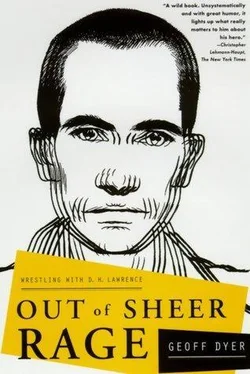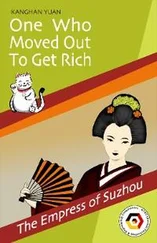But this is an affirmative way of living. I accept the consequences of doing things which I will later regret. In a sense then I regret them before I do them. Instead of resolving to learn to cook I regret to inform myself that by the end of the year I will still not know how to cook (because I hate cooking) even though learning to cook would improve my life no end. Instead of doing the exercises which will save my right knee — and I will say more about my knees in a moment — I resign myself to regretting not having done something about what will, in a few years, be a debilitating, potentially crippling ailment. I resign myself to things: this is my own warped version of amor fati : regretting everything but resigning myself to this regret. However things turn out I am bound to wish they had turned out differently. I am resigned to that.
Take this book which is intermittently about Lawrence. Right now I profoundly regret ever having started it. I wish I hadn’t bothered. But if I hadn’t started it I would have regretted not having done so. I knew this and so I got on with it and now that I have got on with it I regret that I got on with it in the way I did. I regret that it will not turn out to be the sober, academic study of Lawrence that I had hoped to write but I accept this because I know that, in the future, when it is finished, I won’t want it to be any different. I’ll be glad that this little book turned out how it did because I will see that what was intended to be a sober, academic study of D. H. Lawrence had to become a case history. Not a history of how I recovered from a breakdown but of how breaking down became a means of continuing. Anyone can have a breakdown, anyone. The trick is to have a breakdown and take it in one’s stride. Ideally one would get to the stage where one had a total nervous breakdown and didn’t even notice. That, I realise now, is the lesson learned last winter after our abortive trip to Mexico, to ‘beastly Oaxaca’.
What sticks in my mind about Oaxaca is how little I remember of it. We were on the Lawrence trail, of course, but already, even by that stage, the borders of the Lawrence trail were so vaguely defined that it was difficult to imagine an activity not undertaken with Lawrence in mind, that could not be justified by appeal to his name. I thought back to the Blue Line Trail in Eastwood, that narrow strip of paint taking the visitor on an efficient, carefully chosen stroll from one Lawrence-related place to another. My so-called Lawrence trail, on the other hand, was fast becoming unrecognisable, identified, if at all, by its lack of direction, by its overwhelming purposelessness, its capacity to encompass any and every detour. And yet I felt a determination to stick with it, to stick with the peculiarities of a path determined less by Lawrence than by an unswerving fidelity to the vagaries of my nature. By straying, I liked to think, I was following Lawrence’s directions to the letter.
In retrospect it seems now that we went to Oaxaca simply to find a doctor for Laura who had fallen ill. We had quarrelled over some tuna steaks in Puerto Angel. The waiter assured us that the fish on the menu was not tuna. We ordered it and it was tuna, needless to say, a fish I detest more than all the other kinds of fish which I also detest but which, unlike tuna, I will eat if pushed. Tuna, though, I cannot eat and so I refused to taste even a mouthful since not only was this fish clearly tuna it was also a particularly revolting-looking tuna which Laura, in protest against my indignation, insisted on eating with relish. I stormed off to eat something marginally less revolting, and that was — or should have been — that.
It was a sad end to what had been an interesting day, to say the least, the culmination of what might be termed our oceanic experiences. We had spent the day in Zipolite, getting wasted. The name, Zipolite, means something to do with Death. It’s a strip of beach a mile long. There are no hotels, just a few palapas offering beer, shade, and, if you are staying the night, a place to hang your hammock. It is possible to buy grass there and we had done so the day before, missing the last bus to Puerto Angel and walking back along the dirt road in the moonlit darkness. As far as I could make out it was never not a full moon in this part of the world. The grass was terribly strong and everyone in Zipolite was high the whole time. Naked too. To call it a nudist beach, however, is to dress it up in too many words. People say they feel naked without a favourite item of clothing. Here, so to speak, they felt naked without nothing on. The effect of this, as far as I could make out, was the opposite of what allegedly occurs in nudist camps: the de-eroticisation of nakedness. In Zipolite we were horny as rabbits all day. We had sex on the brain. Primitive, hair-pulling sex. Clothesless sex, naked sex. Also, like all women, Laura is completely at ease without her clothes, and felt quite at home naked on the beach at Zipolite. I couldn’t get used to it. I am not really comfortable in shorts, let alone swimming trunks, let alone naked. And despite all the sun worship in his writing it is difficult to imagine Lawrence being happy without his clothes on. Easier to think of him trussed up in his tweed jacket, not wanting anyone to see his scrawny chest, clothing his embarrassment by sneering about the philosopher in his swimming costume: ‘Poor Bertie Russell! He’s all disembodied mind!’ Or — as in a photograph of Lawrence and Huxley — drawing his knees up to his chest, wrapping his hands around his knees so that his sleeves become a blanket, hiding the thin trunk the arms are joined to.
We are skinny, narrow-shouldered men, Lawrence and I. As a teenager I was so ashamed of my skinny legs that I played squash in jeans. Even before that, when I was a boy, I avoided wearing shinpads while playing football because, I felt, the bulk added to my shins and made my thighs seem even scrawnier. My father kept saying I would thicken out but I never did, never will. By the time I am fifty I will be one of those men with narrow shoulders and a droopy, kangaroo paunch. There was a time though, I found myself thinking as I sat naked, smoking dope on the beach at Zipolite, when, in my early thirties, I’d had strong shoulders, when I’d believed that you could not know what it meant to be a man unless you had strong shoulders and arms. Then, after a few years of pumping iron, my shoulders gradually reverted to their Cluedo-piece norm — but I have never quite shaken off the conviction that I was more of a man in that brief period than I was before or have been since. It was a good feeling, I reflected on the beach at Zipolite. Women like men with broad shoulders, men like my friend Trevor, for example, whose girlfriend I have often wanted to sleep with but whom I would never dream of sleeping with — whom I dream of sleeping with all the time but only dare dream of sleeping with — because I am always embarrassed at the thought of her seeing and feeling my bony shoulders and wishing they were more like Trevor’s. Lawrence may have claimed that there was more to being a man than manliness, more to being a man, in other words, than having broad shoulders, but, equally, there is more to being broad-shouldered than having broad shoulders. The metaphorical connotations of having a broad back — of being able to endure things, of being resilient — are qualities by which Lawrence set considerable store. For my part, I thought to myself on the beach at Zipolite, even more than broad shoulders, I would like to have had the qualities of broad-shoulderedness but, metaphorically too, I am, as they say, a narrow-shouldered, long-necked kind of guy: incapable of enduring anything, lacking in resilience, weak, prone to sudden eruptions of temper over petty hindrances. ‘To be brave, to keep one’s word, to be generous’: this, for Lawrence, was what it meant to be a man. The narrator of Berger’s story ‘Once in Europa’ says something similar. According to her the men who deserve women’s respect are ‘men who give themselves to hard labour so that those close to them can eat. Men who are generous with everything they own. And men who spend their lives looking for God. The rest are pigshit.’ I loved that even more than I loved Lawrence’s version, even though it meant I was not a man who deserved respect, was pigshit, in fact. I do no work, I am mean with everything I own and. . and the more I thought about it the worse I felt.
Читать дальше












